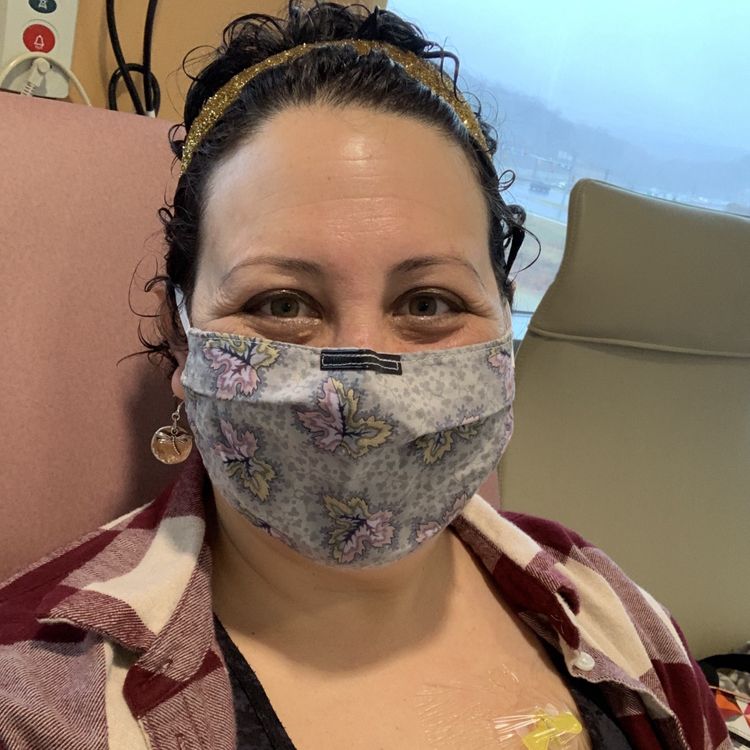Struggling with Time Management, Memory, and Organization?

The sky is not falling and you’re not failing; There’s a reason behind the chaos

Do you ever feel it? That pressing weight of obligations? Sometimes it feels like a literal burden your shoulders. Or even an elephant sitting on your chest. You’re looking around trying to figure out how to get everything done. There aren’t enough hours in the day and you’ve got no more..ahem, flying figs to give. You.are.done. Ever feel that way? You aren’t alone.
This is also a symptom adult Attention Deficit Hyperactivity Disorder (ADHD) or minus the hyperactivity, you may have Attention Deficit Disorder (ADD). This feeling of not getting anything done, not knowing where to start, and having everything left to do.
Children are more likely to be diagnosed with ADHD.
Most adults, like me, have installed coping mechanisms to help them get through their tasks or through the day. It is exhausting.
A friend, who was recently diagnosed and given medication for her ADHD, said it was like finally removing the smudge off her glasses and seeing clearly for the first time.
I desperately want that, too; to be able to stop spinning my wheels and get work done without feeling like the world is crashing over me.
My husband calls it the Chicken Little syndrome. And when I start to feel overwhelm he tells me gently, “Heathy, the sky is not falling.” But I feel like it is and I don’t know where to start. I leave a trail of half finished projects around the house as taunting reminders of my failures.
Adult ADHD/ADD Symptoms
Do you ever look around and think that everyone else has it easier than you? They are able to finish their tasks or be incredibly organized?
I often wonder what it’s like to be able to lay my hand on the piece of paper when I need it. My organization skills are crap, no matter how many systems I put into place.
I have more what’s called organized chaos where I can tell you the general location of a certain item, but not necessarily put my hands on it right away.
After looking at the symptoms of ADHD, I realized, after 40+ years of struggling, I more than likely have ADHD. Some of the symptoms include difficulty with the following:
- Time management
- Memory
- Organization
- Emotional regulation
- Distraction
According to ADDitude: Inside the ADHD mind, 2.8% of the adult population was diagnosed with ADHD in a study conducted in 2016. There are more probably more, like me, who are living with it undiagnosed.
I have coped for years by list making and calendars. If you look at my makeshift desk at the kitchen table you’ll see several open notebooks, lists upon lists, and my alarm going off every so often to remind me to do something.
I can’t organize my way out of a paper bag. I also keep *everything* because “We might need it someday.” The problem with that is I can never find it again when I need it and end up buying a new one anyway. It drives my husband nuts.
My brain is so full that it takes me a lot of time, sometimes hours, to organize what need to get done and by that time the day is half over and all I’ve done is avoided work and become overwhelmed with my growing to-do list.
What do you do if you suspect you have ADHD?
If the above symptoms sound familiar to you, you should speak to your doctor, a licensed mental health professional, a psychologist or psychiatrist who has experienced diagnosing ADHD.
Your doctor can provide an evaluation that may include a rating scale, a physical examination, and various psychological tests. The psychological tests may evaluate working memory, executive functioning (abilities like planning and decision-making), and visual and spatial skills or reasoning.
Together with your doctor, you can decide if you need medication, psychotherapy, or coping mechanisms to help you.
Coping mechanisms
There are several coping strategies to help you alleviate the stress of ADHD.
- List Making
I use list making as a brain dump. I write down all my tasks for the day or week. I organize by priority. What needs to be done TODAY.
Another suggestions is to have no more than 5 tasks/day. Seeing too many tasks at once puts your brain into overdrive. Dividing into chunks, makes it easier to process.
Also, just eat the frog. Do the least desirable task first. It’s the one that hangs over your head and distracts you. Once you’re done with it, it is much easier to move on to the next task.
- Calendars
There are several calendar apps that that notify you with alarms when you need to go to your next appointment or complete a specific assignment.
I have two calendars. One on my phone that organizes all of my families appointments. I can color code and set alarms for each of them.
The other calendar is a hard copy that I write in solely for my work. I use the paper calendar to schedule my articles/assignments/tasks for the month. I like having that large overview. I write everything in pencil because my tasks tend to change pretty frequently.
**Side note: I have found that I tend to remember things more easily if I physically write them down with pen and paper versus just typing them in my phone. If it’s really important I write it down in my notebook and/or calendar as well as typing it into my phone. It helps so much. There is research that writing down notes physically helps us to remember them.
- Separate Notebooks
I *heart* notebooks. I have one for different purposes.
I keep a work notebook (writer’s notebook) to jot down ideas or take notes for work. It makes it easy to have some place where I can just dump all of the information for work in ONE place.
I use another notebook for doctor’s appointments. It’s where I write down questions for my medical team. It’s also where I keep notes from all of my appointments.
I have another notebook for my meetings with my kids’ teachers. There are times that I need to fill out paperwork, do a follow up, or have questions. Between all four kids, there are a lot of teachers.
- Reminders, reminders, reminders
How many times are you late for an appointment or forget to turn something in? I am *always* late. It is a never ending frustration for me. I never mean to be late and I never mean to forget to submit my assignments…it just happens.
I have resorted to setting an alarm for *everything.* It has helped me keep to task and reminds me when I need to start getting ready for the next appointment or task.
I tend to get caught up with a project and lose all track of time. An alarm helps me to transition from one thing to the next.
Whatever you decide to do know that you are not alone. Adult ADHD is definitely a thing. There are many ways to cope and make life easier. Under the advice of your doctor, do what works for you.
I know it feels like the sky is falling. It’s not, but in order to stop that feeling of struggle and helplessness, find what works for you. It might be getting a diagnosis and help from your medical team.
Author’s Note
I am not a medical professional. Please seek the advice of a medical professional if you suspect you have ADHD. They will be able to direct you for diagnosis and best practices for your condition.



